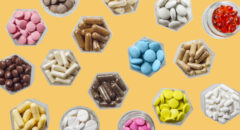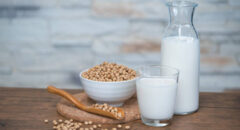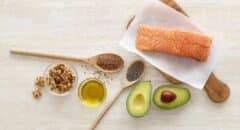
Just take a pill for it, right? This is a very well-known approach to healthcare these days, particularly in the United States.
This includes weight loss. Eat right? Exercise? Why bother when a few pills will burn away fat and make you look great… at least according to many TV commercials?
You already know that many of these claims shouldn’t be trusted. But why?
Here are some of the most popular weight loss products, their claims, their risks…and why taking many of them are NOT a great idea.
Weight Loss Supplements
Bitter Orange, Citrus Aurantium, and Sour Orange
These products are concentrated extracts from the orange peel. They are often used in “ephedra-free” products, claiming that they increase metabolism, but tests involving people haven’t even been conducted! They contain the stimulant synephrine, which can cause hypertension and cardiovascular toxicity.
Orange supplements can also interact with medication. Their risks are even greater when used with other stimulant-containing ingredients such as caffeine and decongestants. Individuals with heart disease, hypertension, and glaucoma should avoid these at all costs.
Chromium
(Examples: Puritan’s Pride Chromium Picolinate, Vitamin World Naturally Inspired Yeast Free Chromium Picolinate, Nutrilite Trim Advantage)
Claims that chromium increases weight loss and improves body composition have only been backed by one study, while all other studies failed to find any supporting evidence. There are two types of chromium: Trivalent (which the body requires and is considered safe in doses of 200 micrograms or less daily) and Hexavalent (which may cause stomach upsets, ulcers, convulsions, kidney and liver diseases, and death). Hexavalent chromium can be toxic and shouldn’t be used in supplements, but some do contain this dangerous form!
Conjugated Linoleic Acid (CLA)
(Examples: Vitamin World CLA, Nature Made CLA, Now Foods CLA)
This product claims to promote leanness, but very few studies support this claim. While more research is needed, CLA is generally safe.
Ephedra/Ephedrine
Ephedra may aid weight loss by suppressing appetite, and research has proven its effectiveness when used with caffeine. However, ephedra causes high blood pressure, stroke, and serious heart problems, which is why the sale of dietary supplements containing ephedra was prohibited in April 2004.
7-Keto Dehydroepiandrosterone (7-keto DHEA)
Preliminary research indicates that this product may decrease body weight and fat composition by increasing metabolism, but larger research studies are needed (see Ephedra to learn why testing is important).
Hydroxycitric Acid (HCA) and Garcinia Cambogia
These products claim to suppress appetite and improve fat metabolism. While studies have shown mixed results, they are








